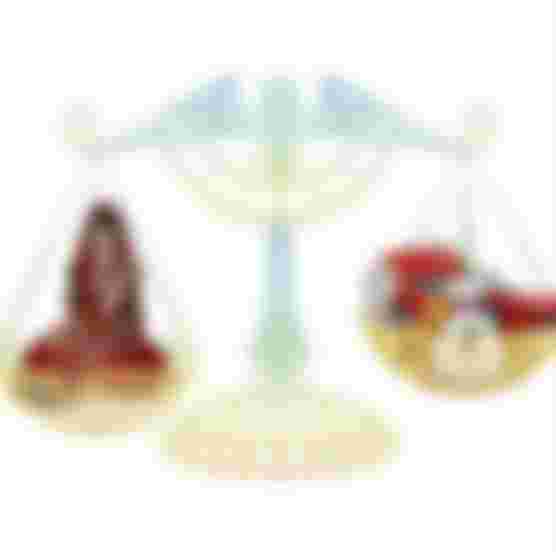What is Dowry?
Dowry is a Bengali word. Its synonym bet. Both are from Sanskrit. In Hindi it is called Dahij (Ubyaral) and in English it is Dowry.

The Encyclopdia Britannica defines it as follows:
`Dowry’: The Property that a wife or a wifes family give to her husband upon marriage. Dowry is the property paid to the groom by the bride or the bride's family on the occasion of marriage. (The New Encyclopedia Britannica V. 4, p. 205)
It has been said in Bangla Pedia that according to the marriage contract, the property or money given by the bride to the groom or the groom to the bride is called dowry or dowry. (Banglapedia 6/455)
The identity of dowry as given in the Dowry Prohibition Act of 1960 in Bangladesh is as follows: Dowry means (a) one party to the other party, or (b) the parents of one party to another party or any other person in a marriage ceremony or marriage. Any property or security pledged directly or indirectly as a marriage dowry at any time before or after. (Dowry Prohibition Act 1980, Act No. 05)
The Prevention of Violence against Women and Children Act was enacted in 2000. It also gives a broad definition of dowry. This law was amended in 2003. The definition of dowry given in the amended law is as follows: Dowry means (i) a marriage by a groom or the groom's parents or any other person directly involved in the marriage during or before the marriage or as long as the marital relationship exists. Money, materials or other assets claimed by the other party. Or (ii) the bridegroom or the groom's father or mother or any other person of the groom who is directly involved in the marriage or any other person directly involved in the marriage at the time of the marriage or during the marriage Resources. (Section 2, Suppression of Violence against Women and Children (Amendment) Act 2003)
However, dowry is not included in the dowry. The Dowry Prohibition Act, 1960, defines dowry and does not include the stamp duty or mohrana payable in accordance with the law. '(Dowry Prohibition Act 1980, Act No. 35)
Similarly, the seal has been removed from India's 1981 Dowry Prohibition Act. (Bangla Pedia 6/455)
Origin of dowry
No definite historical information is available about the origin of dowry. The essence of what researchers have written about its origin and evolution in recent times is that it originated in ancient Hindu society, it is almost recognized.
Reviewing the history, it is seen that in the ancient Hindu society it was Kanyapan (Itrafab Chatrapab) i.e. the bridegroom gave to the bride. The bridegroom was given various assets by the bridegroom's family to compensate for the loss of one of their members through marriage. Over time, that is likely to change (The Family Structure in Islam, By: Dr. Hammadah Abdul Ati); Banglapedia 6/455; Islam and Dowry, edited by Sirajul Haque, published by the Islamic Foundation, p. 15)

Note that the seal of Islam has nothing to do with this virginity of Hindus. Because, the dowry was given to the daughter's family for compensation, not to the daughter. And the seal is given to the daughter herself as an honor, not to the daughter's family.
The reasons behind the gradual transformation of Hindu society into virginity are:
Aristocracy
In ancient times, non-Aryans used to perform their daughters with the Aryans in the hope of gaining status in the society. In return he gave a large sum of money. Since then the dowry system has taken a social form over time. (Islam and Dowry, supra)
Due to this class discrimination or aristocracy of Hindu society, dowry system is still prevalent in Hindu society. Especially among the upper caste Hindus it is very popular. In the nineteenth century, the upper caste Brahmins married more than a hundred in the hope of receiving a large dowry. These wives lived in their father's house. Husbands used to visit once a year and take a lot of dowry while enjoying a lot of hospitality. (Bangla Pedia 6/455)
Adding a new dimension to aristocracy
From the nineteenth century onwards, university degrees gained the status of aristocracy. Then a strong middle class was born in Hindu society. They get degrees by taking English education. This increases their value in the job market and increases their social status. At that time Kanyapaksha used to try to attract Barapaksha with various gifts. The satisfaction of the pot's parents depended on the quality and quantity of their gifts. In a word, it goes to the stage of claiming.
After the bride and groom are chosen, both parties sit down to discuss. The wedding day is fixed. Where will Akad be, when will the bride be handed over, when will Olima be - all these are decided. Along with this, a large section of the society discusses about 'debts and debts'. The discussion of this debt is often at the very beginning. Sometimes even before the choice of the bride and groom. As if ‘debt-debt’ is the main thing, the choice of the bride and groom is secondary. If ‘debt-debt’ is like, ‘black-and-white’ is not a matter.

What is this debt? The bride has to decide what to give to the groom and the groom's family. This is one of the most important issues in marriage in many families. All the attention and intelligence in the discussion of marriage is seen to be applied here. In reality, some of these debts are kept in cash and some are in arrears. That was later recovered from the girl's side. Or the life of the newly married girl is made miserable while trying to recover. This is the name of dowry.
Two.
This curse of dowry imposed on the girl child on the occasion of marriage is not limited to our country. It spreads across the subcontinent. That is Bangladesh, India, Pakistan. 1947 Introduction of the dowry system in the present frontier of East India is in full swing. It is known that the example of introduction of dowry in this way and in this way is not found in other countries of the world. There is no other instance of giving or taking dowry by imposing it on the girl's side, convicting her and considering her as an indebted debt. Not in Muslim countries. The main reason for this is the influence of the neighboring community. Dowry is very important in the marriage system of the larger community of the subcontinent - Hindu community. In that religion, there is no recognition of girls' share in inherited wealth. At the time of marriage, the episode of 'what can be given and what can be taken' is completed. For this, dowry has been and is coming as a strong accompaniment and occasion of their marriage. The influence of the culture and way of life of the large neighboring community in the region can be seen in the lives of Muslims as well as in the case of this dowry. But in Muslim life, this is the complete opposite. That is the rule of Islam. In case of marriage, or conjugal, give son, take daughter. Such as seals. The girl or the girl is not supposed to give anything in this case. But due to the influence and customs of the neighboring community, the lives of many Muslim women are stuck in the mud of curse today.
Another reason why a large section of the Muslim community is clinging to this dowry system is the social perfection. It is difficult for people in general to give up financial benefits and interests. If there is social custom and customary recognition in it, it should get a touch of more rights. Initially, the dowry system was introduced in the Muslim society under the influence of other communities, but now it has no effect. It has now become a normal transaction and debt among itself. Although the groom's family is well-off and wealthy, he now talks to the groom about the debts and understands the account of these debts like a business transaction.

However, it cannot be ruled out that there is a connection between shameless and ruthless greed. As can be seen, many have abandoned other religions and communities over the past century or two after being warned by the scholarly community about other multiple influences. But many are not able to leave the illusion of dowry. It is a matter of shame in the eyes of the common man to take money and furniture as dowry from the family of the girl who is being brought to their house as 'own'. Those who do it do so out of shame and conscience. At the same time, it is an extreme cruelty to put pressure on the girl who has become a part of their family or to avoid her and create bitterness in the relationship with her parents. Beatings and murders are not the last word, those who go the way of stress and bitterness do so ruthlessly. So in this case, shamelessness and cruelty become monotonous on the side of greed.
Another reason for accepting dowry in our society is fearlessness towards Allah and contempt and indifference towards the provisions of Sharia. If there was a general level of respect for the rules that Islam has given for the dignity of women and the protection of women's financial rights, there should not have been any initiative on the part of the groom's family to accept dowry.
But this respect has nothing to do with accepting dowry. Especially in the ruthless stages of assigning ‘debts’ in the name of dowry and recovering it, there are no visible signs of a minimum level of human beings. There is no question that it is compatible with the provisions of the Shariah. So it should not be possible if there is fear of Allah in the heart.
Three.
Dowry is what we give to the groom on behalf of the bride or daughter's family. One thing to note here. This dowry is coming from the bride's family to the groom's family, not to the bride. It is not that the bridegroom is not a dowry, even if it is conditioned, imposed and pressured by the groom's family. But even if it was in the wrong way, it could be said that the bride may be benefiting from it. But in reality, even if it is the bride's dowry, it is coming to the groom or to the groom's whole family. The role of the bride here is only a bridge. The tearful wealth of one family is becoming an instrument of rejoicing in another family because of the bride. The boy's family accepted the innocent girl and rescued her. The whole family of the boy then owned everything that came in the form of cash, motorcycles, private cars, refrigerators, sofas, beds, couches and dowry. This is the practice of the traditional dowry system. This is a strange rule! The peace-loving Mayawati newlyweds have to play the role of a bridge or a pipeline in extracting wealth in a cruel process here.

Inheritance law of Hindu society
This is identified as a fundamental reason for the origin of the dowry system. In the light of both the mitakshara and dayabhaga doctrines of Hindu law, the daughter usually does not get the property of the father. In particular, the share of a married daughter in property is very uncertain according to the Dayabhaga doctrine.
There is a clear reference in Hindu law that a daughter cannot inherit the property left by her father if she has a son, grandson, great-grandson, or widow, and an unmarried daughter predominates over a married daughter. If the daughter ever gets this property, she only has the right to enjoy it. It does not establish rights. (Hindu Law, p. 35)
In Hindu law, this property is not called the main property or dowry of a woman. The dowry of a woman, so that her rights are also established, is the gift of parents, friends and other relatives, and especially significant is the dowry. (Hindu Law, pp. 58-69)
In Hindu society, women have been oppressed in various ways for ages. They have also been utterly deprived of inheritance. It is written in the scriptures of Buddhism, wives are ignorant, they have no judgment, they are ineligible for inheritance. (Hindu Law, p. 51)
Under Hindu law, women do not get any dowry (the property on which women's rights are established). So their dowry has been arranged in the name of giving dowry at the time of marriage. (Hindu Law, pp. 58-69)
This is what later became the current omnivorous dowry.
More notably, the widow's participation in her husband's property is almost uncertain under Hindu law. Because if one of the sons, grandsons or great-grandsons is alive, the widow does not get any of the property left by her husband. If they don't get it, if they ever get it, it's just usury. Therefore, after the death of the widow, the property inherited from her husband is not inherited by her later heirs but by the heirs of her deceased husband. (Hindu Law, p. 34)
The widow's only dowry is various donations and dowry received at the time of marriage. This is stated in the Encyclopানdia Britannica.
In short, the various customs of the Hindu society are the main reason for the origin of the present dreadful dowry system. It also existed in Europe between the 19th and 20th centuries. (Encyclopedia of Britannica, supra)
But there is no history of dowry in ancient Muslim society.
The Encyclopedia of Britannica does not mention any Middle Eastern country in its history. It contains-
At the beginning of the twentieth century, when the dowry system destabilized the Hindu middle class, the Muslim middle class was at ease and free from worries. Not only that, the girls of the Muslim society were highly valued.
Due to the fact that Hindu society and Muslim society have been living together for a long time, this evil practice of dowry has also been transmitted to Muslim society in recent times. (Legal and Moral Context of Islam, Tamizul Haq, Barrister et al., P. 527)
Law against dowry system
In 1970, the Dowry Prohibition Act was enacted in Bangladesh. Anyone who pays or receives or assists in paying or receiving dowry is liable to imprisonment for up to 5 years (not less than one year, again not more than 5 years) or a fine of Rs 5,000 or both. (See also: Section 11 / (a) of the Women and Child Abuse Suppression Act 2003; Commentary on Islamic Law, Collected from Gazi Shamsur Rahman)

The horrors of dowry
Dowry is not going to be stopped even after repeated laws. It is easily understood from the following statistics.
According to a report by the United Nations Development Program (UNDP) in July 2003, 50 percent of women in Bangladesh have been physically or mentally abused in the past 10 years due to dowry. According to the report, at least 127 women were killed due to dowry, 18 committed suicide, 40 were tortured and 15 were divorced across the country in 2001. There have been 2,81 cases for this.
According to a survey by the National Association of Women Lawyers, from 1996 to 2003, 85 women were killed for dowry and 562 were physically abused.
According to the Women's Violence Cell of the Department of Women's Affairs, 65 cases were filed in the family court in 2000 due to dowry. 412 in 2001, 120 in 2002 and 141 in 2003.
So we should get rid of this heinous disease from the society. That is why everyone needs to work together. Only then is eradication possible. Proper enforcement of the law will help a lot in this case.
Sir @georgedonnelly @ErdoganTalk @Dreamer Hopefully you give a word about your thought please.
Thank you






really awesome and important tropic share your page ,i really like it. its a common affairs in our country . we must be prevent get together . thank you for nice article and good evening dear brother